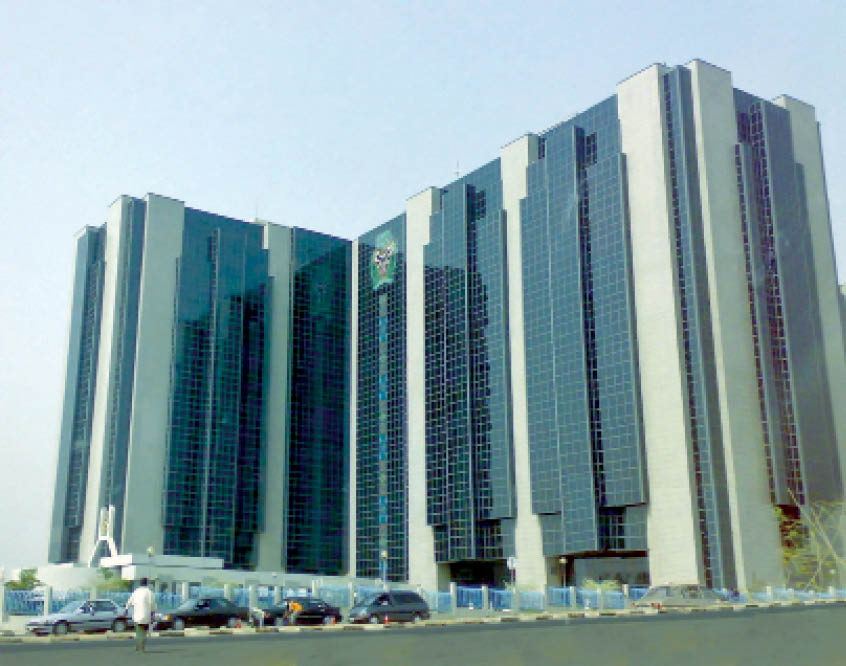Explainer: What to know on National Card Scheme
The Central Bank of Nigeria (CBN) and Nigeria Inter-Bank Settlement Systems (NIBSS) Plc alongside the Banker’s Committee are set to implement the use of a national card scheme to improve the payment system in Nigeria. What is a card payment scheme? $31.6m ECOWAS project stalled over FCDA’s approval The next president’s fuel subsidy challenge According […]

CBN headquarter, Abuja
The Central Bank of Nigeria (CBN) and Nigeria Inter-Bank Settlement Systems (NIBSS) Plc alongside the Banker’s Committee are set to implement the use of a national card scheme to improve the payment system in Nigeria.
What is a card payment scheme?
According to Wikipedia, card schemes are payment networks linked to payment cards such as debit or credit cards of which a bank or any other eligible financial institution can become a member. By becoming a member of the scheme, the member then gets the possibility to issue cards to acquired merchants operating on the network of that card scheme.
Recently, the CBN in a statement said there will be tremendous benefit in introducing the domestic card scheme which will reduce costs and use of foreign exchange, protect data sovereignty, enable locally relevant propositions; and make cards and payments more accessible and affordable for Nigerians.
There is also potential to leverage the scheme as a platform for seamless dissemination of government-to-person payments and other social impact initiatives, ultimately enhancing financial inclusion and supporting the growth of a robust digital economy.
It is also expected to foster innovation within the Nigerian domestic market and the African continent, allowing banks and other institutions to offer a variety of solutions including debit, credit, virtual, loyalty, and tokenised cards amongst others.
How does a card scheme work?
The card scheme uses its rules to transfer card transaction information from the acquiring bank to the issuing bank (from the merchant to the consumer). It then passes the payment back to the acquirer to confirm the payment.
Credit and debit card schemes work with four parties. Together, these four parties make up an open-loop system that allows consumers to seamlessly purchase items or services from merchants by letting the banks do all the work on their behalf.
The card scheme also attracts a fee such as fees paid to be a member of the scheme and interchange fees.
According to GlobalData, in 2021 the annual value of card transactions in the Nigeria cards and payments market was $18.2 billion. The market is expected to grow at a compound annual growth rate (CAGR) of more than 18 percent during the forecast period.
Interestingly, cash remains the preferred method of consumer payment in Nigeria. This is mainly due to the country’s highly unbanked population, limited public awareness of electronic payments, and limited access to banking infrastructure.
Globaldata also noted that financial inclusion is a top priority for the Central Bank of Nigeria (CBN). The CBN is undertaking various initiatives, such as including financial education in school curriculums and organizing promotional campaigns to increase awareness of banking products. These initiatives have supported the payment card market, which has seen significant growth in terms of payment volume and value, indicating that preferences have started to shift.
Debit cards are the most popular card type for payments, but measures are being taken to increase the use of credit cards.
Also, improving payment acceptance infrastructure, adoption of contactless payments, and a growing e-commerce market will further boost the uptake of electronic payments.
In 2020, COVID-19 played a key role in boosting the use of electronic payment.
Although the pandemic impacted consumer spending (which in turn affected the payments industry), there has been a rise in the use of electronic methods of payment at the expense of cash.
However, banks attempted to provide basic financial access to the unbanked population by expanding agent banking networks and infrastructure.
At the end of 2021, the number of digital payment channels rose to N6.43trn compared to the N4.72trn recorded in 2020.
Data on the NIBSS website showed that transaction volume on its instant payment platform rose to N271.95trn compared to the N158.21trn that was recorded on the platform in 2020.
This shows that there has been an enormous improvement in electronic transactions and introducing the national card payment scheme will encourage more use of such transactions and further promote a cashless Nigeria, which is one of the CBN’s priorities.
